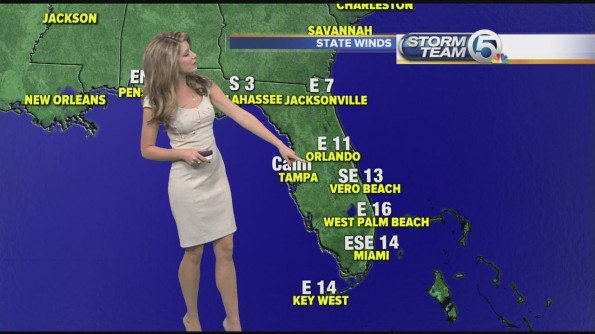Let’s face it, if you live in Florida you are well aware of when hurricane season begins and ends, what items need to be packed in a hurricane kit and where to turn for the most accurate weather updates. Being informed is one of the most important aspects of hurricane preparedness, and nearly every Floridian tunes into the news when a hurricane is on its path, even if it’s heading only remotely toward us.
 But here’s a question...how do the experts predict a hurricane? It seems that every season has a predicted number of hurricanes that may or may not make landfall; some seasons with hardly any storms predicted and others with dozens. So what are the ABCs of predicting a hurricane? Let’s find out.
But here’s a question...how do the experts predict a hurricane? It seems that every season has a predicted number of hurricanes that may or may not make landfall; some seasons with hardly any storms predicted and others with dozens. So what are the ABCs of predicting a hurricane? Let’s find out.
Hurricanes 101: Know Your History
Hurricane prediction stems largely from what has already happened. Centuries of data collection and record keeping help scientists to better understand what’s going on in the atmosphere. After all, the weather was around to wreak havoc on the planet long before humans existed. Using carbon dating, geologists can determine approximate storm dates by how the sand in the earth is left behind after storms, even if the storms were from a long time ago.
Hurricanes 101: Embrace Technology
After we do our research and see what common themes lie in the earth’s soil, that’s where technology really comes into play. Utilizing remote sensing satellites, scientists track and monitor the movement of a hurricane. In combination with a specialized aircraft that gathers data, global centers (Regional Specialized Meteorological Centers) have the task of interpreting this data, tracking the storm and alerting the public if needed.
In addition to these sophisticated satellites and aircrafts, weather satellites are used to track the clouds and air circulation patterns. Radar helps out in measuring wind speed and precipitation, while infrared sensors assist with revealing key temperature differences in a storm.
Did You Know? At any given point, more than one tropical storm can be active. That’s why meteorologists give names to storms...to differentiate between them!
The ABCs of Predicting a Hurricane
As our science lesson comes to an end, let’s recap what important steps need to be taken by meteorologist to accurately predict a storm:
- Always send accurate updates to the public if extreme weather is on its way.
- Be aware of changes in temperature, cloud heights, wind speed and more with specialized satellites and radar.
- Check the history records to learn about how the weather has been impacting us and look for common trends.
The More You Know
It’s true that knowledge is power, especially when it comes to something as serious as a hurricane. Hurricanes can destroy entire towns and leave many people homeless or injured. Being prepared is imperative to every family. Having sufficient food, water and supplies, along with knowing your evacuation route should be a priority. Protecting your home from wind and debris is important, so make sure your hurricane protection is up to code and installed correctly. There’s no such thing as being too prepared.





